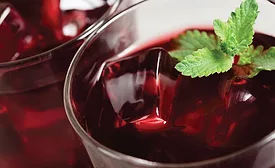Home » Keywords: » aspartame
Items Tagged with 'aspartame'
ARTICLES
American Beverage issues statement asserting confidence in finding
Read More
Five Points Trading blossoms under HEINEKEN USA leadership
Venture incubates global beer brands for U.S. market
September 11, 2017
Sugar reduction drives sweetener selection for beverages
Health and wellness drives demand for natural sweeteners
September 11, 2017
PepsiCo to bring back Diet Pepsi with aspartame
Aspartame version to be called Diet Pepsi Classic Sweetener Blend
June 28, 2016
Health and wellness trends drive sweetener choices in beverages
New specialty sweeteners, formulations provide natural options
September 11, 2015
PepsiCo release aspartame-free Diet Pepsi
New formulation features blend of sucralose
August 10, 2015
Sweetener usage changes with consumer preferences
Consumers look for natural sweeteners that don't compromise on taste
June 16, 2014
Sweetener blending helps reduce calories, enhance taste
Consumers more concerned with amount of sweeteners than type
June 14, 2013
Sweeteners help companies cut back
Natural, artificial and blended solutions reduce calories, costs
June 11, 2012
Elevate your expertise in the beverage marketplace with unparalleled insights and connections.
Join thousands of beverage professionals today. Shouldn’t you know what they know?
JOIN NOW!Copyright ©2026. All Rights Reserved BNP Media.
Design, CMS, Hosting & Web Development :: ePublishing


